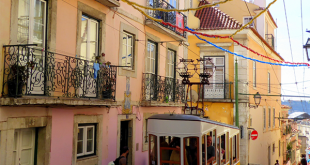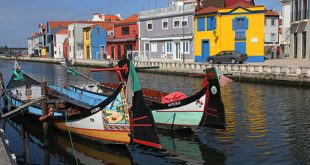Portugal is the oldest nation in Europe, a place where you can study while enjoying a sunny weather and admiring picturesque coastlines and other magnificent sights. And the qualitative education in the country has drawn more than 40,000 international students to pursue academics in Portugal. This guide covers everything to know about masters degree in Portugal: application requirements and process, costs, types of programs, institutions and more.
Table of Contents
Is Portugal good for Masters?
There are many reasons why you should choose Portugal to further your studies and earn a master’s degree. Starting with the country’s reputable universities, delivering excellent education and offering interesting research opportunities. As a matter of fact, more than institutions in Portugal are currently present in the Times Higher Education world universities ranking. This testifies in the favor of the education quality in the country.
Moreover, Portuguese universities, in partnership with several research centers are responsible for more than 1% contribution in the world’s most prominent research publications. Also, Portugal is among the most popular countries in terms of student exchange programs. In this regard, several Portuguese universities are active members of the Erasmus+ program.
The third reason to choose Portugal for masters is that it’s affordable. It’s actually the main motive behind many international students’ decision to go to the country for study purpose. Public universities in Portugal will charge you a tuition fee of somewhere between €500 and €5,000 per year. On the same topic, the living costs in Portugal are also lower for anyone, including students.
Lastly, Portugal is a good study destination just because it is Portugal, a country where the weather is nice all year round! Add to this delightful climate, all the historic places, the cultural and leisure activities in the country, and you’ll never run out of things to do when you’re not at school studying.
Masters course types
There are 2 ways you can earn masters in Portugal:
- As a second-cycle postgraduate qualification, where you study to earn a “mestrado” (master’s degree) after you’ve completed an undergraduate degree. This type of master takes one to two years to complete, which is worth 90 to 120 ECTS credits.
- As a long-cycle qualification, at the end of which you earn a “mestrado integrado”. This is a master you’d earn in professional subjects such as medicine or law. The program takes up to 6 years to complete (300-360 ECTS credits), and usually includes an undergraduate component. In other words, this is a joint-degree, where you don’t undertake a prior bachelor’s degree.
Both masters courses consist of successive units of coursework. Student, in both cases, work on an independent project which can be either a research dissertation or a piece of practical work. At the end of the program, some students need to undertake an oral defense of their project or dissertation.
And that’s what make masters in Portugal stand out, as the amount of work students are required to do offers an excellent preparation for a PhD’s degree.
Quality assurance for the Portuguese education
Any programs at higher education institutions in Portugal go through an initial approval by an private body, before being officially approved by the Portuguese Directorate-General for Higher Education (DGES). The first quality evaluation is then done by the Agency for Assessment and Accreditation of Higher Education (A3ES) which primary mission is to define and enforce the quality standards of the higher education system in Portugal.
The definite approval then is up to the Portuguese government’s DGES, a branch of the country’s Ministry of Science, Technology and Higher Education.
How to apply for masters in Portugal?
Admission to a bachelor’s degree in Portugal usually goes through a central platform dedicated to higher education. For masters on the other hand, you can directly apply through the university’s official website. The confirmation of enrollment will later serve for your student visa application in Portugal.
The application process for a master’s degree at Portuguese universities and polytechnics is pretty straightforward. Each institution’s online platform usually has an admission section you can go to.
Just keep these few points in mind before you submit your application:
- Do not apply to only one university/ polytechnic. You can increase your chances by applying to more than one institution.
- Check all the required documents and verify if the institution asks them to be translated in Portuguese.
- Make sure you meet the language requirement and have the documents proving it.
Admission requirements to masters in Portugal
Documents to submit when you apply for a master’s program in Portugal vary depending on the university. But the most common paperwork include:
- Filled application form
- Bachelor’s degree or any equivalent undergraduate qualification, in the case of a traditional master.
- Transcripts of your previous academic records
- Motivation letter or recommendation letter
- Academic resume
- References if applicable
- Proof of fluency in the program’s language of instruction:
- IELTS, TOEFL, or CAE (Cambridge Assessment English) – C1 Advanced if it’s in English
- DAPLE or DUPLE Certificates if you plan to study in Portuguese.
Competitive admissions
For some masters programs in Portugal, the number of places might be limited by a numerus clausus system. This usually imposes a separate quota for international students.
The purpose behind it is to ensure that only exceptional candidates are admitted, which on first look might seem daunting. However, this might be a good thing since it proves somehow the high quality of the program and the degree you’ll earn after completing it.
Moreover, some institutions may also require masters applicants to sit an entrance exam or pass an interview as part of the application.
Application deadlines and university year in Portugal
The last information to keep in mind on masters application in Portugal is the deadlines. Like for the documents to provide, dates may vary from a university to another.
However, general deadlines usually fall by the end of May, July or September. There are therefore 3 intakes and courses start either in the autumn or in spring semester.
Read also our guide on university admission in Portugal.
How much does a master’s degree cost in Portugal?
Masters fees in Portugal remain relatively cheap compared to what applies in other European countries. Usually the amount of tuition at public institutions are set by the Portuguese government, based on the country’s current minimum wages. The purpose is for these study fees to stay competitive and affordable.
You can expect to pay between €500 and €5,000 per year, depending on the course format, the type of institution, and the students’ nationalities. A full-time master at a public university therefore costs around €1,000 a year, for EU/EEA students.
Polytechnics usually charge a slightly higher fee. Moreover, private institutions charge more than €2,000 – €2,500 per year. And lastly, non-European international students would pay more than the local and European students on the basis that they choose a polytechnic or university, public or private institution.
Funding your masters studies in Portugal
As an international student, therefore paying more fees, you can always seek for a funding opportunity for your masters. The Portuguese government via the DGES, higher education institutions, private foundations as well as programs such as Erasmus+ are all good financing sources you can check out.
Read also our guide on the best scholarships in Portugal for more details.
Universities in Portugal offering masters programs
In Portugal, you can study and earn a master’s degree at universities as well as polytechnics. The main difference is that universities offer academic education, while polytechnics focus more on practical and professional studies.
You can read our ranking of the best universities and polytechnics in Portugal. But here are a few universities you can check to find some of the top-notch masters programs in Portugal:
- University of Lisbon
- University of Porto
- NOVA University of Lisbon
- University of Coimbra
- Instituto Superior Técnico
- ISEG Lisbon School of Economics and Management
- Catholic University of Portugal




 Aljawaz Your guide to study abroad
Aljawaz Your guide to study abroad








